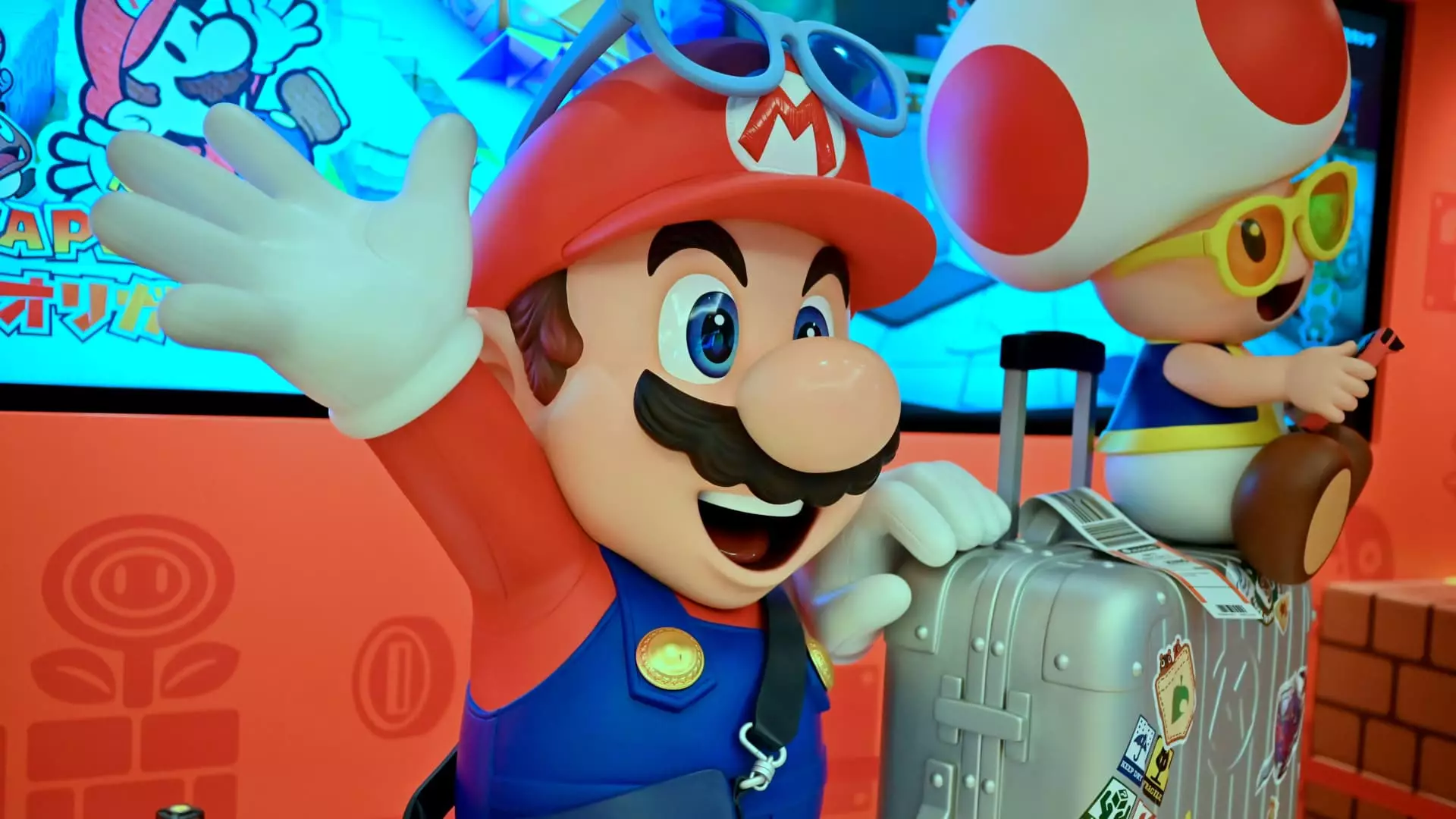As we step into the new year, Nintendo’s fiscal third quarter announcement has raised some eyebrows, revealing a more complicated financial landscape than analysts had anticipated. The company released its numbers for the period ending December 31, and the results have sparked discussions surrounding the future of the Nintendo Switch and the forthcoming Switch 2. This article delves into Nintendo’s recent performance, the implications of its strategies, and what lies ahead for one of the gaming industry’s titans.
Nintendo’s revenue for the third quarter settled at 432.92 billion Japanese yen (approximately $2.8 billion), significantly under the expected 498.22 billion yen. Similarly, while net profit of 128.53 billion yen appeared robust, it fell short of forecasts and marked a 6% decline year-on-year. These figures highlight a trend that can no longer be ignored—consumer interest in the nearly eight-year-old Switch is dwindling. In an attempt to reignite sales, Nintendo has made adjustments to its full-year forecasts, now expecting to sell just 11 million Switch units, down from an earlier estimate of 12.5 million. Moreover, projected net profit has been cut from 300 billion yen to 270 billion yen, illuminating challenges that may persist as they navigate toward the release of their next console iteration.
A significant focal point in the wake of these results is the anticipated release of the Switch 2. Launched in 2017, the original Switch has become one of Nintendo’s flagship products. Expectations are high, bolstered by a recent teaser that hinted at the capabilities of the upcoming system, which will reportedly support some existing Switch titles. Yet, as excitement builds, the company is under pressure to maintain the momentum and loyalty built around the original console while transitioning to new technology.
The challenge ahead is aligning consumer expectations with the realities of gaming innovation. The fear looms that the phenomenal success of the original Switch may lead to skepticism regarding the necessity of upgrading. Extended engagement with a highly connected user base—129 million annual players who consistently buy major titles—must be managed delicately. Analysts, like George Jijiashvili from Omdia, have noted that Nintendo’s success puts them in a unique yet precarious position. Effectively managing this transition will require them to convince existing customers of the Switch 2’s value while keeping the original hardware relevant.
Historically, Nintendo has successfully adapted its strategy—introducing updates to popular franchises and leveraging multimedia avenues, such as movies starring beloved characters like Mario. However, these efforts might not suffice to sustain interest in a console nearing its eighth year. Players are becoming increasingly demanding, exposed to a broader spectrum of game experiences and evolving technologies. The gaming landscape is shifting, and what once captured players’ imaginations may no longer hold the same allure.
Analysts speculate that the Switch 2 is set to debut in the first half of 2025. Sales projections estimate 14.7 million units sold within the first year of its launch, a considerable target for a device that must compete against the nostalgia and functionality of its predecessor. As observers analyze the market, the question arises: can Nintendo outdo itself? Jijiashvili paints a picture of a tall order, emphasizing that the Switch 2 needs to be more than merely a sequel; it must compel consumers to invest in a new gaming experience.
As Nintendo navigates this period of transition, it finds itself at a defining crossroad. The company has enriched the gaming industry with iconic titles and innovative consoles, but sustaining that momentum requires strategic foresight. By unveiling details at the forthcoming Nintendo Direct event on April 2, fans and investors alike will eagerly await updates on pricing, launch dates, and exclusive features. All eyes will be on whether Nintendo can maintain its legacy while successfully birthing a successor to one of the most successful consoles in history. The road ahead is fraught with challenges but also rich with potential as the gaming giant prepares to take the next step forward.

